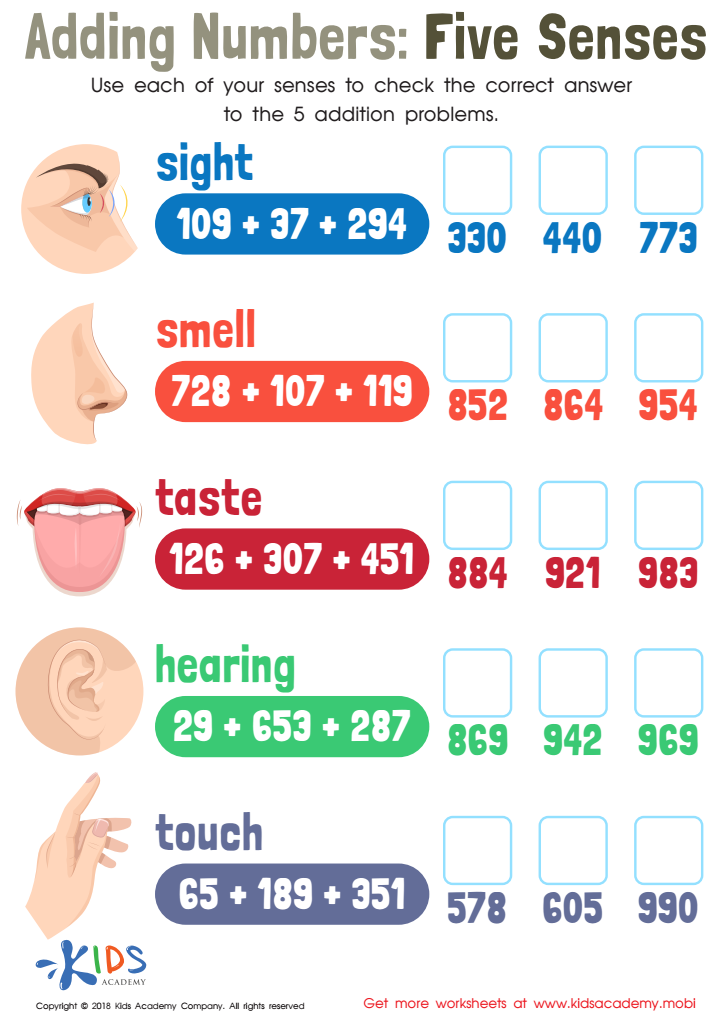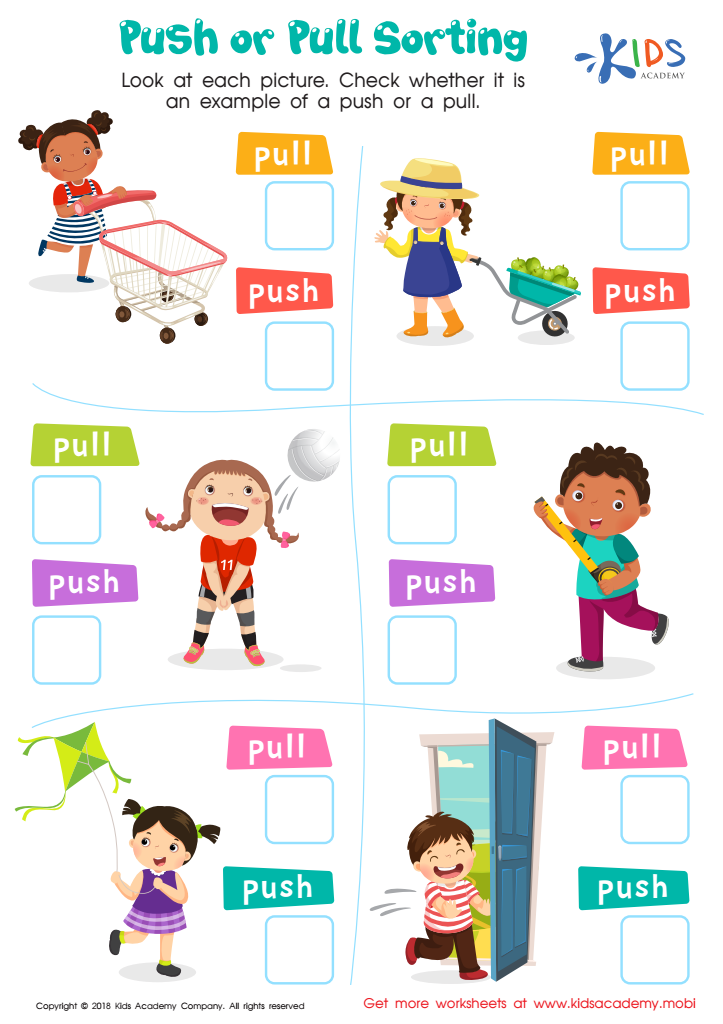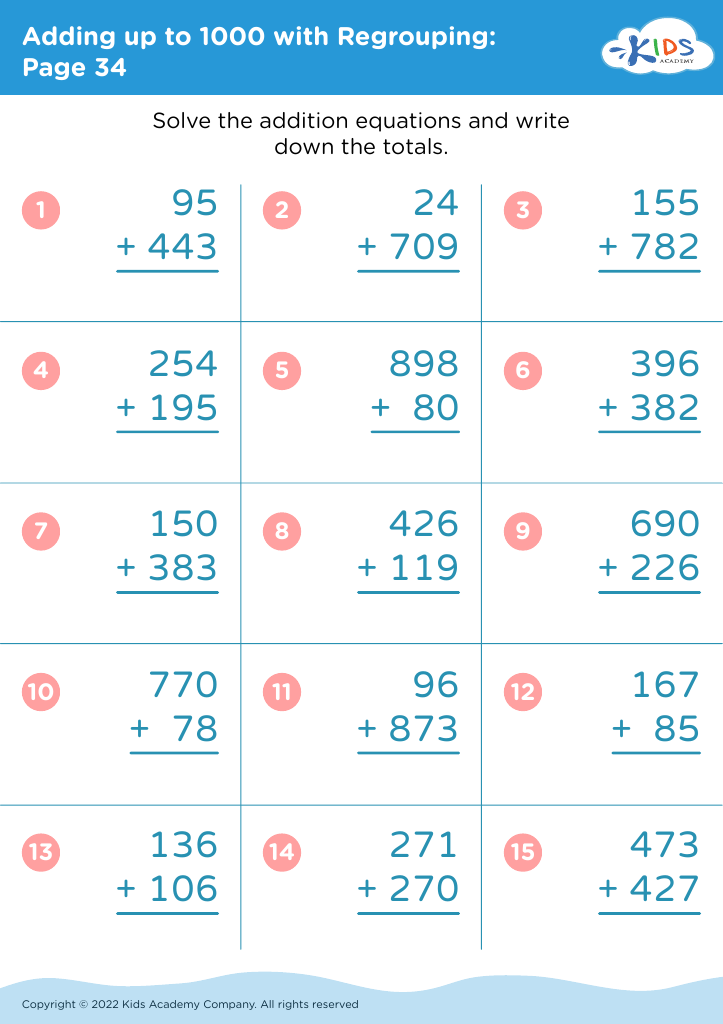Improve observational skills Worksheets for Ages 3-7
3 filtered results
-
From - To
Boost your child’s attention to detail with our "Improve Observational Skills Worksheets for Ages 3-7." Perfectly crafted for young learners, these engaging worksheets enhance critical thinking and visual perception. Offering a variety of fun activities, puzzles, and games, they help children focus on noticing small details and differences in pictures and patterns. Ideal for both at-home learning and classroom use, these worksheets are designed to develop keen observational skills essential for early learning stages. Watch your child's abilities grow as they enjoy the challenge and excitement of exploring the world around them through these captivating exercises.


Adding Numbers: Five Senses Worksheet


Push or Pull Sorting Worksheet
Observational skills are crucial for young children, ages 3-7, as they form the bedrock for cognitive development and learning. When parents and teachers focus on improving these skills, they are essentially widening the doors to knowledge and understanding for the child. This age range, often referred to as the formative years, is when children naturally begin to explore and make sense of the world around them. Their observations help them develop an awareness of their environment, enhance their vocabulary, and sharpen their thinking skills.
By honing observational skills, children learn to notice fine details, patterns, and subtle changes in their surroundings, which fosters a sense of curiosity and encourages scientific thinking. For instance, observing how plants grow or noticing different shapes and colors in objects builds foundational knowledge for later academic subjects such as science, math, and art.
Furthermore, good observational skills are integral to social development. They enable children to better understand and interpret the emotions, expressions, and actions of others, thus promoting empathy and effective communication. Overall, nurturing observational abilities helps create keen, perceptive individuals who are better equipped to succeed in both their academic and personal lives, making it a vital focus for parents and educators.
 Assign to My Students
Assign to My Students




















